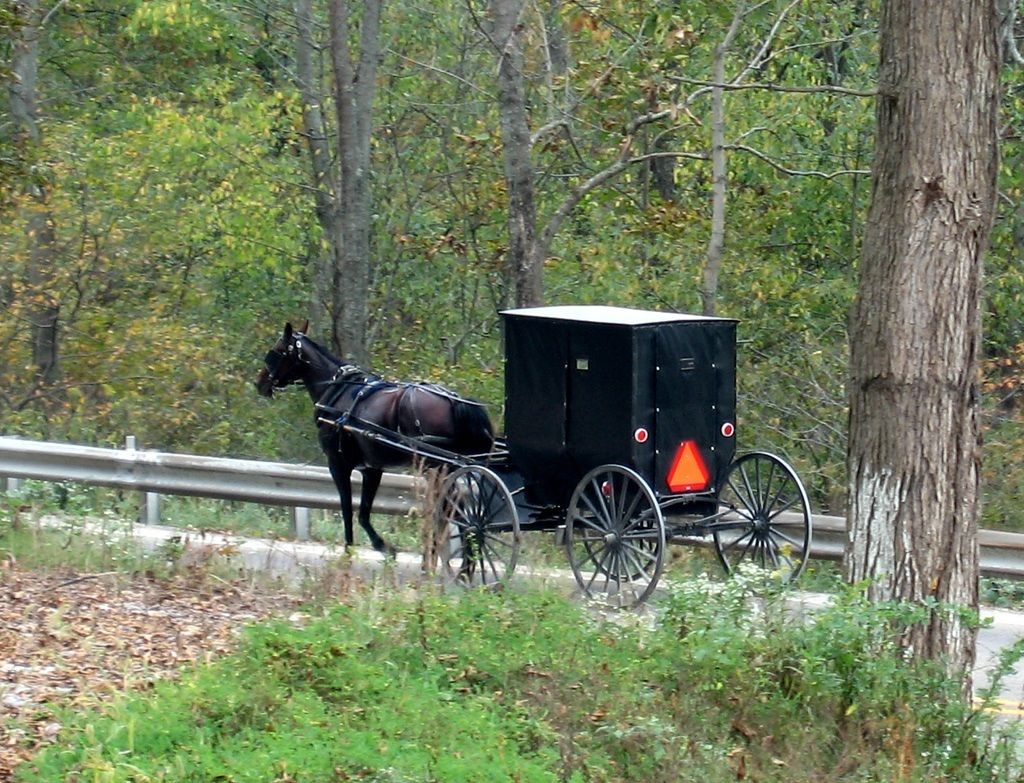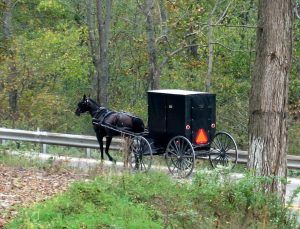
Church Health Insurance: Effective in the Amish Community
The Amish community is exempt from the health insurance mandate that is now federal law. Members of this community rely on each other for taking care of their health, rather than relying on insurance companies. It’s an interesting approach to healthcare, and it is effective for communities where people rarely leave or enter.
I visited Lancaster County this weekend and spent some time on a touristy, but respectful, tour of one of the local Amish communities.
 Amish children don’t receive education beyond the eighth grade, and as a result, there are no doctors or lawyers within the community. In some respects, they do rely on outsiders despite being as self-sufficient a community as possible with that level of education. “English” — that is, non-Amish — doctors cater to the Amish community, and when a member of the community visits the doctor’s office or a hospital, they pay for these services in cash.
Amish children don’t receive education beyond the eighth grade, and as a result, there are no doctors or lawyers within the community. In some respects, they do rely on outsiders despite being as self-sufficient a community as possible with that level of education. “English” — that is, non-Amish — doctors cater to the Amish community, and when a member of the community visits the doctor’s office or a hospital, they pay for these services in cash.
Once a young Amish adult decides to officially join the community, he or she begins paying a fee to the church. From what I understand from the tours I’ve participated in, this fee could be $100 per month. The fee does is not for the benefit of the church or its leaders; these payments are collected and resolve to care for members of the community in personal times of need. When a member of the community needs to cover health expenses, he or she is responsible for the first $2,000 of expenses — similar to a deductible in a traditional health insurance plan — but beyond that amount, the church will cover the remainder of the cost.
Religious grounds helped the Amish community win exemption from the law that will require all citizens to have a private or state-based plan from a regulated insurance company. Amish, who don’t collect Social Security payments or other forms of government assistance, are also exempt from Social Security taxes, after winning one court battle. A recent appeal seems to indicate that this exemption would apply only to self-employed Amish community members, but many individuals in the community are self-employed.
The concept of church-based health insurance may not be as effective in other communities. The reason this works well with Amish churches is that the member families have little migration. The same families have been part of the same congregations for generations. Although Amish community members can ride in cars, they don’t drive. Transportation is mostly by horse-and-buggy and scooter. This keeps the communities tightly-knit. Without much change of membership in each congregation and with a community where everyone is known, communities don’t need to worry about people taking advantage of the system.
Beyond the Amish community, where there is more geographical mobility, insurance coverage based on local churches may not be practical. Putting aside the idea that receiving exemption from the health insurance mandate is difficult, even on religious grounds, it might be hard for churches to collect this kind of payment when members believe they may not remain members long enough to benefit. Commercial health insurance is different as the pools are much wider, and can extend benefits to a new member even if he or she has not yet paid a premium (although companies often try to avoid this situation by charging higher premiums or denying coverage for people with pre-existing conditions).
Would you prefer a church or community based approach to health insurance?


Article comments
I have a relative who uses her church based insurance for their family’s coverage. It’s through some arm of the Presbyterian denomination; they pay like $300 per month for their whole family. They seem to like it and have had decent quality of care over the years.
Interesting post! Learned a few new things there. 🙂
The Amish are basically just running their own self insurance system. THats great for them if it works. Self insurance can certainly work. Most large employers actually self insure and just pay the insurance company to shuffle the papers. If you have a very large group of people all paying in then its actually little different than any other insurance system. The Amish also cut out the expenses of giving 30% of their money to fund insurance company bureaucracy, paperwork and profits.
I wonder how much the Amish actually use modern medicine? I’d also wonder if local hospitals or health organizations give the Amish preferential rates or if the Amish negotiate prices as a group or what?
From my understanding the Amish do get a discount on their costs but it is similar to the cash payment discount you might be able to get from your local hospital or doctor clinic. There may be some locations that do give additional discounts but nothing i’ve ever heard of to give examples.
I think this could actually work in some of the major churches such as the Catholic Church or Mormon Church. They both have a good hirearchy and sturcture with many people that join not changing religions ever again. With many Baptist churches around where i live they don’t interact but i could see something working from a national level here as well. It would likely not really work any different than the setup for any national chain or business.
It’s ignorance on my part but I had no idea that there were christian health insurance organizations. I think what the amish are doing is interesting but I would prefer a community based approach to buying health insurance.
The Amish are incredibly unique. Everything is about community. I don’t see this working well for many other types of churches, thought I have heard of success in giant Christian health insurance organizations.
This is fascinating! I am especially intrigued by the fact that the community has found a way to opt out of Social Security. I could see other religious groups attempting this…..if they thought that their church community was entirely solvent and reliable.